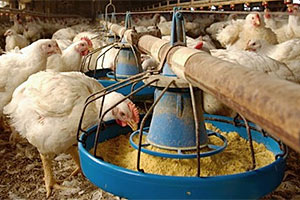AGOA: Economic effects of providing duty-free treatment for imports
On January 14, Witney Schneidman testified before the USITC on the Africa Growth and Opportunity Act (AGOA) renewal, which is set to expire in 2015.
Dear Secretary:
Thank you for the opportunity to submit testimony on the four investigations related to the AGOA renewal discussions. My short testimony will offer selective comments on three of the four investigations.
Tax Incentives: As it concerns the first investigation, AGOA: Trade and Performance Overview, an overriding concern is how investments by the EU, China, Brazil and India have overshadowed the presence of U.S. business in Africa. In fact, as a non-reciprocal preference program, AGOA has done little to advance the interests of U.S. companies on the continent. This needs to change. Not only is the African market increasingly competitive, but U.S. companies are only slowly waking up to Africa’s commercial potential. A revised AGOA should encourage U.S. companies, in a meaningful way, to become more active on the continent. Not only do African governments want more American companies to invest but it is in the U.S. national interest as well.
The way to achieve more investment is to offer U.S. companies a tax incentive, specifically a zero tax on repatriated income from investments in productive sectors. Not only would this be a signal to U.S. companies that Africa is a priority investment destination for the U.S., but it would lower the risk and increase the return, especially for small and medium U.S. companies. In its report 10 years ago, the Commission on Capital Flows to Africa found that the cost of such an incentive would be about $70 million per year. At the same time, the report also found that there would be a boost for African GDP on a ratio of 5 to 1; for every dollar loss to the U.S. Treasury, there would be $5 of additional Africa income. I would urge the ITC to undertake its own study of the costs and benefits of a tax incentive for U.S. investment in AGOA-eligible countries. I am sure the benefits to the U.S. and Africa would still far outweigh the costs.
Trade Hubs: The AGOA legislation of 2000 provided for the creation of three trade hubs, in Accra, Nairobi and Botswana, whose primary purpose is to help African companies access the U.S. market through AGOA. USAID has begun to review the role of the trade hubs and this is to be commended. I would argue that the trade hubs need to have three roles: continue to help African companies access the U.S. under AGOA; foster regional integration; and, perhaps most importantly, become a one-stop, whole of government entity to help U.S. companies be successful in Africa. There is no question that the official U.S. commercial presence on the continent is simply not up to the task of helping U.S. companies navigate the complexities of the market and compete with firms from other nations. As a result, our trade hubs, or investment centers, should include not only USAID officials but officials from other agencies, such as Commerce, OPIC, TDA, Ex-Im and Agriculture.
Conditionality: Also, as it concerns the first investigation, it is important to note that one of AGOA's objectives was designed to foster improved governance and economic reform. I would argue that AGOA’s effect has been marginal at best in this respect. I have never heard a government leader, a civil society leader or a business leader attribute the continent's significant progress in these critical areas to AGOA, nor have I seen it quantified or measured empirically. In fact, the marked improvement in governance and economic growth have little to do with AGOA and virtually everything to do with dynamics related to the growth of civil society and African demands for better governance and access to improved education, health care and opportunity. Given these significant changes, I think a country should remain in AGOA once the benefits are extended unless we impose full economic sanctions against that government, much like we have done with Iran, Syria and Sudan.
In my view, it makes no sense to deny AGOA benefits to a country like Madagascar or the Democratic Republic of the Congo, which only harms the very people we want to help—and they are usually women. There is no evidence that denying benefits effects the calculations of the political elites in these countries. Even in Zimbabwe, the targeted sanctions that exist do so for valid reasons but that should not prevent us from engaging with those sectors of the economy that are abiding by local and international law. After all, USAID has a $32 million program to support businesses in the agricultural sector; so why should AGOA not be able to strengthen the efforts of USAID and those businesses working to create jobs, generate income and use technology in an innovative manner?
Regional Integration: With regard to the third investigation, U.S. AGOA Rules of Origin: Possible Changes to Promote Regional Integration and Increase Exports to the United States, there is no question that enhanced regional integration is critical to Africa's economic development and the continent's integration into the global economy. It is generally well known that intra-African trade is lower than in any other region. However, there are other actions apart from addressing rules of origin that can be taken by African governments and the U.S. to strengthen regional integration and enhance the flow of goods and exports to the U.S. under AGOA. For example, a one-stop border post was recently developed at Chirundu on the border between Zambia and Zimbabwe. From various accounts, delays have been reduced in the transit of commercial vehicles from days to hours. The revised AGOA legislation should encourage the U.S. to work with African regional economic communities to establish one-stop border posts as a priority. This would lower transportation costs and make the goods more cost competitive for the U.S. market. Given that customs revenue is involved, it is likely that national implementing legislation will be required to create these one-stop border posts. I would argue for establishing goals over a five-year period, and progress on the creation of one-stop border posts should be assessed on an annual basis, perhaps at the AGOA Forum.
The U.S. can use other instruments to strengthen regional integration and supply chains that would increase exports to the U.S. For example, the Millennium Challenge Corporation has compacts with Mozambique ($506 million), Malawi ($350 million) and Zambia ($354 million), all of which are AGOA-eligible countries. For as much good as these MCC programs do, and it is significant, it must be noted that these three countries are geographically contiguous and none of the MCC programs have any cross-border aspects, be it in customs, transportation or power. Strengthened AGOA legislation should encourage the MCC to think cross-border with its programs when two or more contiguous countries are approved for compacts and how to better utilize AGOA.
South Africa: As for the fourth investigation, EU-South Africa FTA: Impact on U.S. Exports to South Africa, it would be a mistake to graduate South Africa from AGOA in 2015. According to the Congressional Research Service, preferential imports from South Africa in 2012 totaled $3.7 billion, accounting for roughly three-quarters of all U.S. imports from sub-Saharan Africa under AGOA/GSP. Approximately half of South Africa's AGOA exports were vehicles or transportation equipment. In South Africa, the automotive industry is the fifth largest employer, directly employing 36,000 people and indirectly supporting nearly 275,000. To end South Africa's preferential access under AGOA 20 months from now would clearly inflict a serious negative shock on the economy of one of our most important partners on the continent which would reverberate throughout the region.
Clearly, there are issues that we need to resolve with South Africa such as its apparent intention to sign an economic partnership agreement with EU. This works against the interests of U.S. companies as do other tariff and non-tariff barriers maintained by South Africa. Given the importance of this relationship, it demands a closer analysis to develop a strategy for enhancing U.S.-South African commercial relations on a more equitable basis over time.
Economic Partnership Agreements: Related to this, it important to note that the European Union has adopted a trade policy toward Africa, predicated on Economic Partnership Agreements, that is negative for Africa, undermines regional integration, and discriminates against foreign investment and trade that does not originate in the EU. Not only should USTR raise objections to the EPAs in the context of the Transatlantic Trade and Investment Partnership (TTIP) negotiations but there should also be formal discussions with the African Union. At minimum, the African Union should be encouraged to request the EU to postpone the deadline of October 1, 2014 when African nations are required to sign interim agreements. After all, the first deadline for the EPAs to be completed was in 2007, so it should not be too difficult to postpone it further. There is little doubt that the EPAs and AGOA are simply not compatible, and the European approach would undermine AGOA should it take the force of law.
Thank you for this opportunity to appear before the U.S. International Trade Commission. I applaud the important work that the ITC is doing on this as well as the Obama Administration for undertaking this very timely review of the African Growth and Opportunity Act.
View related video clips




